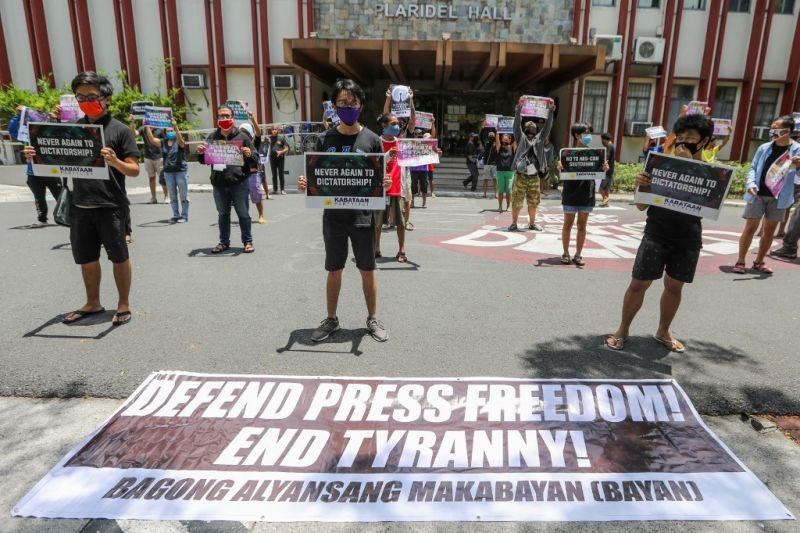Cusi drops libel, cyber libel raps vs 7 news orgs over Malampaya reports

MANILA, Philippines — Outgoing Energy Secretary Alfonso Cusi withdrew the libel and cyber libel complaints he filed against seven news organizations who reported on the graft complaint filed against him over the controversial Malampaya gas field buyout.
Cusi said in a statement on Friday that he was dropping the complaints against the news organizations “in the interest of preserving what can be saved” from the “valued friendships and professional relationships” he forged with the respondents.
“I am therefore executing this affidavit of desistance to move forward from the unfortunate events by sparing everyone from the rigors of prosecuting and defending criminal cases,” he said.
Cusi’s decision to drop the raps against the media organizations comes after the office of Davao City prosecutor junked similar complaints filed by Dennis Uy, businessman and close friend of President Rodrigo Duterte, over the same stories.
Organizations of journalists had decried Cusi and Uy’s filing of libel and cyber libel complaints against reporters and news organizations who simply reported on the filing of a graft complaint before the Office of the Ombudsman.
In the now dropped complaint, Cusi accused journalists of "malicious" reporting and imputation of graft against him. He explained his decision to file libel cases in a separate statement, saying the move was “to protect the integrity” of public officials and “to support and honor them.”
Cusi also demanded P200 million in damages from each of the news organizations, a sum that the National Union of Journalists of the Philippines said would have “crippled” them.
The news organizations whose executives, editors and reporters faced Cusi and Uy’s libel complaints are ABS-CBN, Business Mirror, BusinessWorld, GMA News Online, Manila Bulletin, Philstar.com and Rappler.
Four other mainstream media outlets — the Philippine Daily Inquirer, CNN Philippines, Manila Standard and Manila Times — ran similar reports about the graft cases but were not included in Cusi's libel complaints.
Decriminalize libel
In 2012, the United Nations Committee on Human Rights declared that the continued criminalization of libel in the Philippines violated the country’s obligations under the International Covenant on Civil and Political Rights.
Journalists in the country have long called to decriminalize libel, along with the graver cyber libel offense stipulated in the Cybercrime Prevention Act of 2012.
The Philippine Center for Investigative Journalism in 2014 had warned of the "chilling effect" it may have on free expression, while media watchdog Center for Media Freedom and Responsibility said it "throws such a wide net it penalizes even legitimate expressions of opinion online." — Xave Gregorio with a report from Angelica Y. Yang
- Latest
- Trending






























